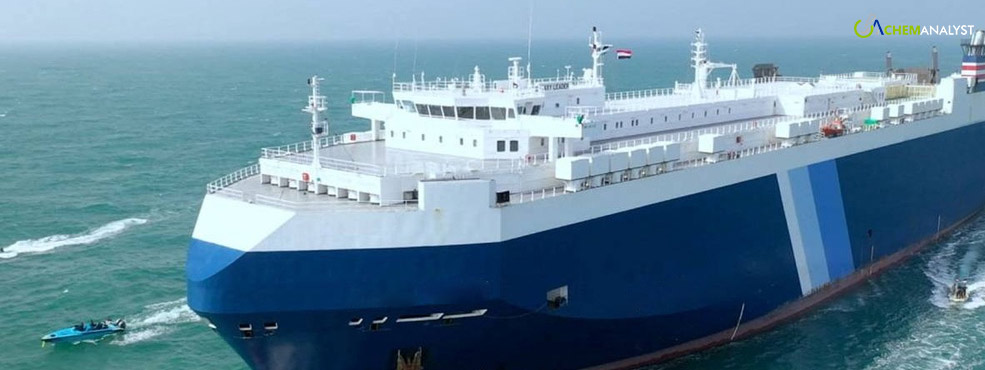Welcome To ChemAnalyst

Shipping volumes through the Suez Canal witnessed a significant decline last week, plummeting by 55%, while alternative routes, particularly around the Cape of Good Hope, experienced a surge. This shift in traffic patterns is a direct result of continuous attacks by Houthi rebels on commercial vessels, prompting major shipping operators to divert away from the strategically crucial global trade artery.
Numerous shipping companies have opted to reroute their vessels away from the Red Sea to evade potential attacks. The preferred alternative is the longer and more expensive route around the Cape of Good Hope in South Africa. The Suez Canal serves as the shortest sea route between Asia and Europe, facilitating approximately 12% of the world’s shipping traffic and playing a vital role in global trade.
Major players in the shipping industry have temporarily shifted their vessels away from the Suez Canal, resulting in a 67% reduction in weekly container ship transits. Additionally, container carrying capacity, tanker transits, and gas carriers have experienced significant declines, contributing to the economic and environmental costs associated with rerouting around the Cape of Good Hope.
In January, income from the Suez Canal dropped to $428 million, a substantial decrease from $804 million in January 2023, according to Osama Rabie, chairman of the Suez Canal Authority. The total number of ships transiting the canal in January fell by 36%, from 2,155 vessels in January 2023 to 1,362 vessels in January of the current year.
Before the outbreak of the Israel-Gaza war, Egypt collected approximately $700 million per month in Suez Canal transit fees, according to the IMF's managing director Kristalina Georgieva. However, due to the Houthi attacks in the Red Sea, the country is now facing the loss of "hundreds of millions of dollars" per month. The economic impact is particularly challenging for Egypt, which is already dealing with record inflation, a heavy debt burden, and a slowdown in tourism caused by the Gaza war.
Amid these economic challenges, Egypt and the IMF are actively engaged in discussions for a comprehensive support package. Julie Kozack, IMF spokeswoman, noted that both parties have made excellent progress on the talks. While the main elements of the program have been agreed upon, discussions continue, and there is a strong commitment from Egyptian authorities to the proposed support package.
Kozack emphasized the need for a comprehensive support package for Egypt, aiming to address any residual financing needs and ensure macroeconomic and financial stability. The ongoing discussions are crucial to navigating the economic repercussions of the Houthi attacks on shipping in the Red Sea and other challenges faced by the North African economy, including the potential impact of refugees moving from Gaza into Egypt.
We use cookies to deliver the best possible experience on our website. To learn more, visit our Privacy Policy. By continuing to use this site or by closing this box, you consent to our use of cookies. More info.
